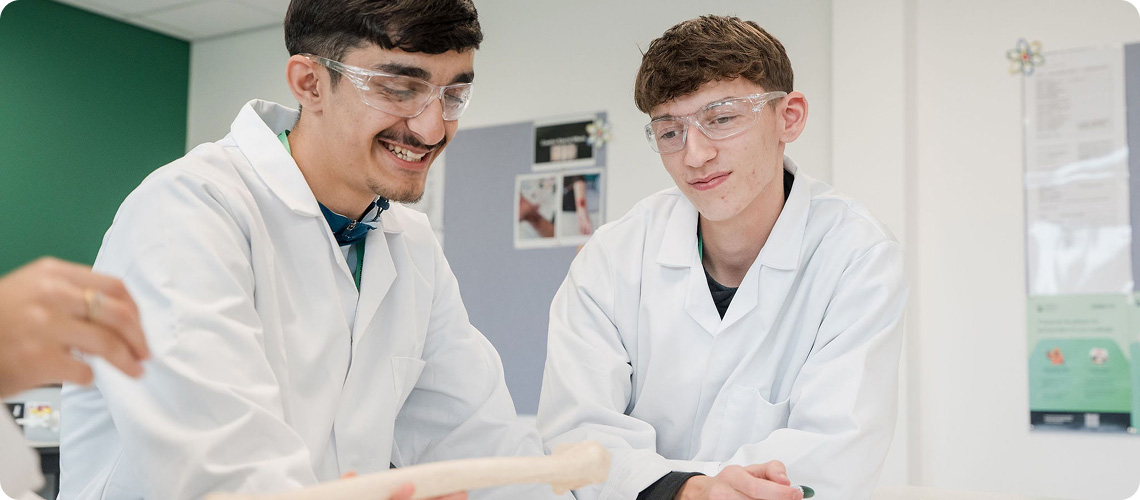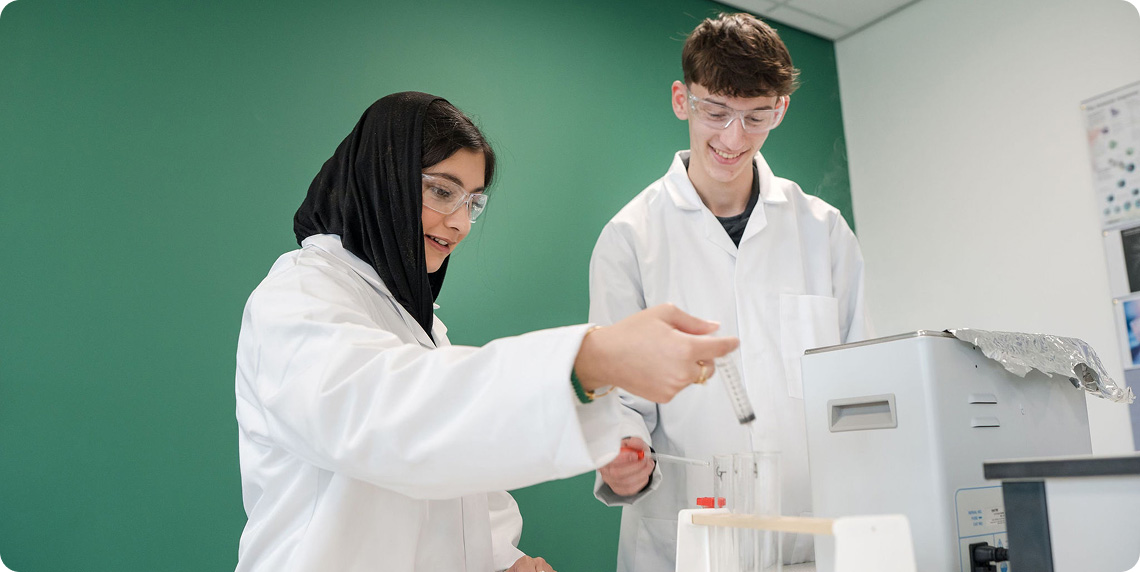


In the second year, a more integrated approach to considering biological systems is needed, as we learn about how different parts of the body and various populations interact in the topics of communication and ecology.
Throughout the course, you will develop a variety of investigative practical skills, including the use of scientific equipment, data presentation and analysis and technique evaluation.
The course is assessed by examination at the end of each year. You will also work on an ongoing practical portfolio consisting of required experiments, which will be reported separately in the results.
Grade 9-5 in GCSE Biology or grade 5-5 in GCSE Combined Science, along with grade 9-5 in GCSE Maths.
Biology students have a great basis to explore a range of science subjects, including neuroscience, food and nutrition, and medical courses.

Typically, the human body contains approximately 1.325 gallons of blood - about 7 to 8 percent of a person's total body weight.